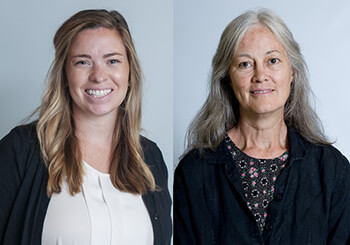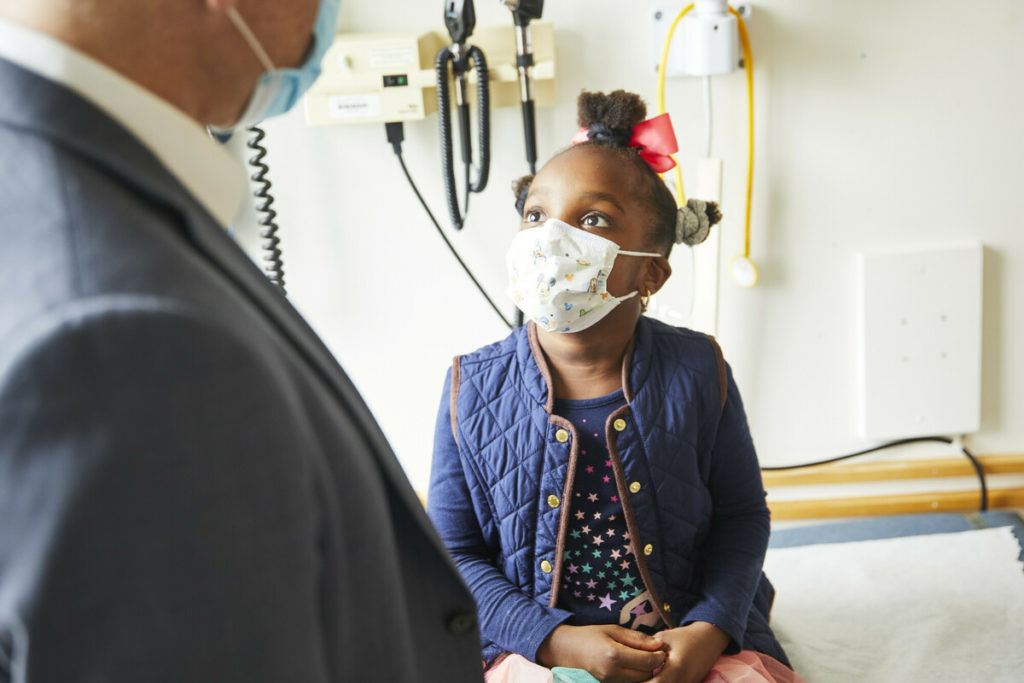In January 2022, Mass General for Children (MGfC) launched the Pediatric Bereavement Program, a two-year pilot program to provide bereavement supports and resources for families who have experienced the death of a child who was cared for at MGfC, as well as for their clinical caregivers.
The program aims to help families navigate the first two years of their grief. This includes helping families transition from hospital to community supports; coordinating funeral arrangements; guiding families in how to best support their other children; paying attention to family mental health and making referrals to mental health providers, if needed. The team also checks in with families by phone, virtual visit or in person on particular milestones after a child’s death. This can include birth and death dates, special holidays, Mother’s Day, Father’s Day and milestone anniversaries that are known to be challenging, such as one month, six months, one year and two years. The team connects families to resources that are personalized to them, based on preferred language, cultural beliefs, faith and nature of the child’s illness or death.
Staying Connected
Patricia O’Malley, MD, is the medical advisor for the Pediatric Bereavement Program at MGfC. “The death of a child is a devastating experience for parents,” she says. “Grief literature speaks to the importance of ongoing connection to the hospital and care team, attention to the mental health as well as social functioning and integration of the bereaved family, with care tailored to the individual needs of the family.”
Staying connected with families was of particular significance in July. For internationally recognized Bereaved Parents Month, program staff sent a Jan Richardson poem, “Blessing for the Brokenhearted,” tucked in a small white package with wildflower seed paper butterflies. “Butterflies are often viewed as a symbol that a loved one is communicating with them and is ok,” said Mary Barber Bussiere, LICSW, a social worker and program coordinator for the Pediatric Bereavement Program. “The seeds are perennials, which come back each year, representing the everlasting love a parent has for a child.”

From a preventive health perspective, said Dr. O’Malley, a hospital-based bereavement program has the potential to facilitate the adjustment of bereaved parents and families after the death of a child by continuing the flow of information, guidance and support after the family has left the hospital following the death of their child. The program will also have the benefit of ensuring all families who have experienced the death of a child receive care — not just those whose child had a certain disease or who was cared for by a particular service.
Living with Grief
“After a child dies at the hospital, the families must leave the place that holds so many memories for them, whether their child was here for an extended length of time or just a few hours. In the hospital, they have experienced the loving guidance of staff journeying with them as their child nears death,” said Mary. “We help families maintain a connection to people and to a place that hold a lot of meaning.” Even when a child dies elsewhere, the clinical caregivers who have been part of the child’s medical care can remain a source of comfort and guidance.
“We no longer speak of healing from grief, but rather of accompanying families as they learn to live a new life with their grief, understanding that grief is a normal response to the loss of a loved one and that the intensity and duration of grief is unique to each person,” said Mary.

Caring for Caregivers
The MGfC Bereavement Program also aims to serve the caregivers who cared for the child who died, in recognition of the care team’s shared responsibility to care for the family even after the child’s death.
For providers who cared for the child who died, Dr. O’Malley hosts Caregiver Gatherings, with two other skilled facilitators, Annah Abrams, MD, a psychiatrist in Child and Adolescent Psychiatry at MGfC and Roxan Del Valle La Torre, MDiv, a chaplain and spiritual care clinician in Spiritual Care at Massachusetts General Hospital and MGfC.
“Caregiver Gatherings are meant to hold a space for clinical staff to come together as a bereaved community, to remember the child and family for whom they cared and to honor the care given,” said Dr. O’Malley. “Staff are encouraged to participate in ongoing bereavement outreach because they are uniquely positioned to be a support to families simply by virtue of having been witness to the family’s loss.”
The program is guided by an Advisory Committee that includes interdisciplinary members of the pediatric care staff, including representatives from Social Services, the John Hancock Child Life and Wellness Program, Spiritual Care, Music Therapy, Interpreter Services, Nursing and physician providers, as well as two bereaved families.
Philanthropy Matters
Sustaining and eventually expanding the Pediatric Bereavement Program relies heavily on philanthropy. Recently, the program received a generous gift from The Parmenter Foundation, an organization that brings hope and support to local community members who are grieving or in need of compassionate end-of-life care. The Foundation provides funding for nonprofit organizations that deliver high quality, innovative bereavement programs and palliative care.
“We are thrilled to support Mass General for Children in its innovative and compassionate endeavor to provide a continuum of support for families after the unimaginable loss of a child,” said Angela Crocker, Executive Director of The Parmenter Foundation. “We are hopeful that this project will pave the way for expanded bereavement care in our community.”
For information on how to support Mass General for Children and the Pediatric Bereavement Program, please contact us. To contact the Pediatric Bereavement Program directly or to make a referral, email MGHFCBP@mgh.harvard.edu or call 617.724.5962.
Much of this story first appeared in March 2022 on the MGfC website.



